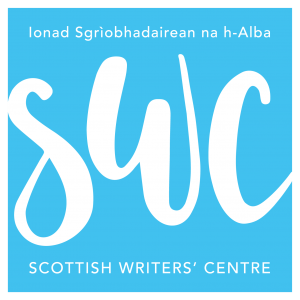Historical fiction is something that we’re all familiar with; historical poetry maybe somewhat less. On 1st August the SWC are delighted to be welcoming poet Sally Evans to the CCA for ‘The Burrell Story: History as Poetry with Sally Evans’, a fascinating insight into Sally’s own poetry collection, which draws upon the lives of William Burrell (the namesake of Glasgow institution the Burrell Collection), and the idea of using real stories to inform the complexity of poetry. Ahead of tomorrow’s event, SWC’s Literary Editor Rachel Walker talked to Sally about her poetry, and how research can help enhance the poetic imagination.
What prompted your interest in the Burrell family?
I first became interested in the Burrell family through visiting the Burrell Collection and reading about William Burrell – I wondered how an industrialist with little education and presumably fairly narrow views managed to become a world-class art collector. I also read about industrial Glasgow and the various industries for which shipping was a vital service, and the way of life and aspirations of the well-off industrialists. For example, William Burrell wanted his daughter Marion to marry into the aristocracy – although initially there was little information to be had on Marion. The important information about her life surfaced later.
How difficult was it to undertake research into the family?
It was reasonably easy: there were good recent books on the history of the Burrell Collection. I have long been familiar with using books and libraries, which was a help, and being able to Google saved many hours of visiting libraries. Basic research is so much easier than it used to be, but you do benefit from training and experience in research. In projects such as these, details must be correct – because my original interest was in William Burrell as an art collector, I think that gave me more power to write about Marion’s problems and to take the story from both points of view.

Have you always had an interest in historical or fact-based poetry? How do you feel it differs from more abstract poetry?
I’m quite surprised to realise that yes, I have done something similar before. I wrote about Thomas Bewick, the engraver, and his walk from Tyneside to Scotland in 1778. I knew roughly his itinerary from a chapter in his autobiography but I added many imaginative details that fitted in with his bare description. This was in my book Bewick Walks to Scotland. In terms of defining historical poetry, I feel that all poetry has subject matter, but in a longer poem you can be more ambitious about the subject matter. The words, feelings and responses to the world are not materially different than when penning something historical, fictional or personal. But stories are interesting, and this kind of poem has a more complex story than other types.
Do you have a favourite poem or poet?
I have sort of grown out of having a favourite poet, there have been so many. I have always liked longer poems.
Are there any other historical periods or people that you would like to write about?
I think you have to have an inspired or passionate interest in a historical person to do this. I wrote a few poems about Robert Thompson, the Yorkshire woodcarver known as ‘the Mouseman’ (c.1950s), and there was a time when I might have written about the Brontë family, but I didn’t. At the moment, writers such as Maureen Almond and Catherine Ayers are writing about life in Roman Britain, and I think that there is a lot of scope for feminist history of this sort, feeling how it must have been for women in certain times and circumstances. Look at the poems about Scottish women that Gerda Stevenson has been writing and publishing recently. Basically, if anyone inspires you, you can write about them. Where the history has not been told from your point of view, be it feminist history or engaging in different forms of such (such as engravings or wood carvings), you have scope for something interesting and new.
Interested to learn more about Sally and her wonderful poetry? Please come along to the CCA Clubroom tomorrow at 7pm – all are welcome!



